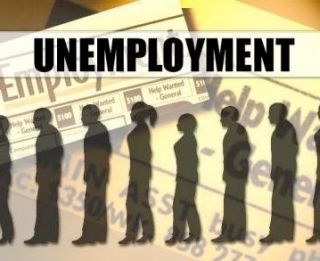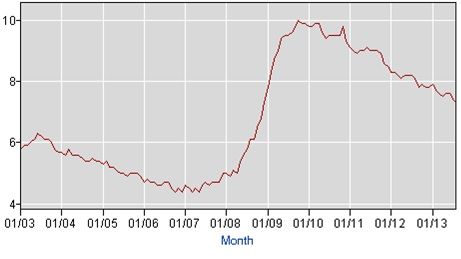Depression
The Forgotten American: The Sad Story of the Unemployed
Unemployment continues to be a problem with health & psychological consequences.
Posted October 7, 2013

The unemployment rate in the United States has very slowly declined, but it is still at historically very high levels. In October 2009 the unemployment rate was 10.0 and as of the end of August 2013, the unemployment rate is 7.3 per cent. The last four years have been dismal for millions of Americans and their families and many have become so discouraged that they no longer look for a job. 37.9 % of those who are unemployed have been out of work for 27 weeks or more. Discouraged, depressed, angry, feeling abandoned, many of these people have given up—and many feel that the country has given up on them. They feel like the forgotten Americans.

There are significant—even fatal—consequences of unemployment. In a study in Finland, researchers followed workers who had been unemployed (or never unemployed). Men who had been previously unemployed were 2.5 % more likely to have died compared with men who had never been unemployed. The increased mortality rates were due to increased risk of respiratory disease, cardiovascular disease, suicide and accidents. Other research indicates that unemployment is associated with increases of suicide, injuries, and accidents—and that the less educated among the unemployed are the most likely to suffer. Indeed, prior unemployment is associated with significant increases in CRP which is a predictor of cardiovascular disease and diabetes. C-reactive protein (CRP) is a major risk factor that increases with unemployment. Even the threat of unemployment affects your health. In companies facing layoffs, current workers show increased levels of cholesterol .
Unemployment is bad for your physical and mental health. The unemployed experience greater levels of depression, insomnia, anxiety, worry, suicide, feelings of helplessness, low self-esteem, malnutrition, cardiovascular conditions (especially heart attacks), alcoholism, increased smoking and generally poor physical health. And increased risks of crime are also associated with unemployment. The unemployed are more likely to abuse drugs and engage in crimes, especially burglary.
And unemployment often has what is known as the “scar effect”—along with increased health risks there are decreased life chances. For example, the unemployed have an increased likelihood of future unemployment, decreased life-time earnings (even when discounting the period of lost earnings during the jobless period) and continued worries about losing the next job. Youth who suffer periods of unemployment have a 13- to 21 per cent decrease in earnings by the age of 41. Unemployment leads to delay of important life decisions, such as getting married or having a baby. Ironically, unemployment is associated with lower divorce rates---because getting divorced is so costly and because many unemployed cannot get out of a mortgage for a house that is under-water. Although marriages may be falling apart during this time, the unemployed person may not be able to afford a divorce.
In future posts I will be discussing the psychological problems that many unemployed people face. The unemployed person may feel overwhelmed by emotions, believing that no one understands them, depressed, self-critical, guilty and ashamed. Unemployed people often have lost their sense of identity--- especially if they identified their self-esteem with their job. They often have lost their structure of daily time—believing that they have nothing to do all day. Stuck at home, ruminating, dwelling on how bad they may feel, the unemployed person may feel stuck in a sense of helplessness, believing that daily life is beyond his or her control.
Unemployment is difficult on the individual and on his or her family. If you are unemployed, you know how bad it can feel. But there may be some things that you can do to make things better. And I will describe them in my next post.
Robert L. Leahy, PhD is the author of Keeping Your Head after Losing Your Job: How to Survive Unemployment.


